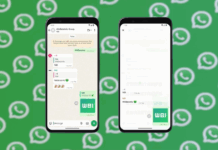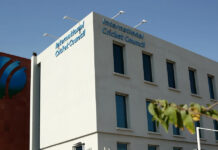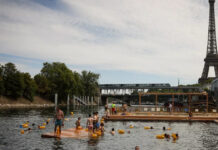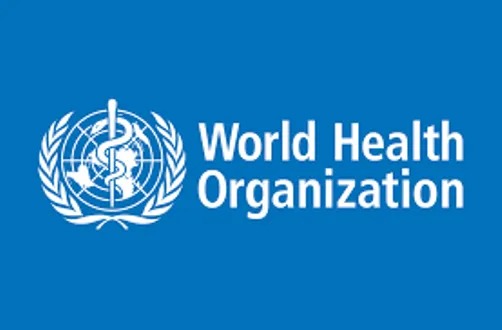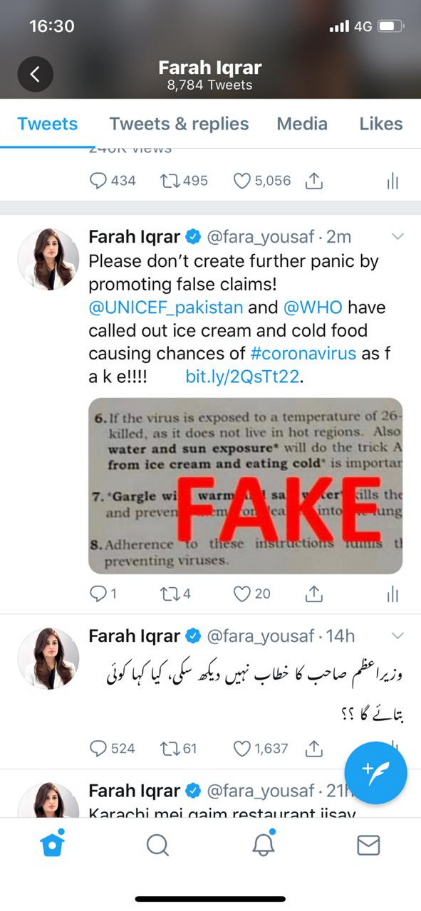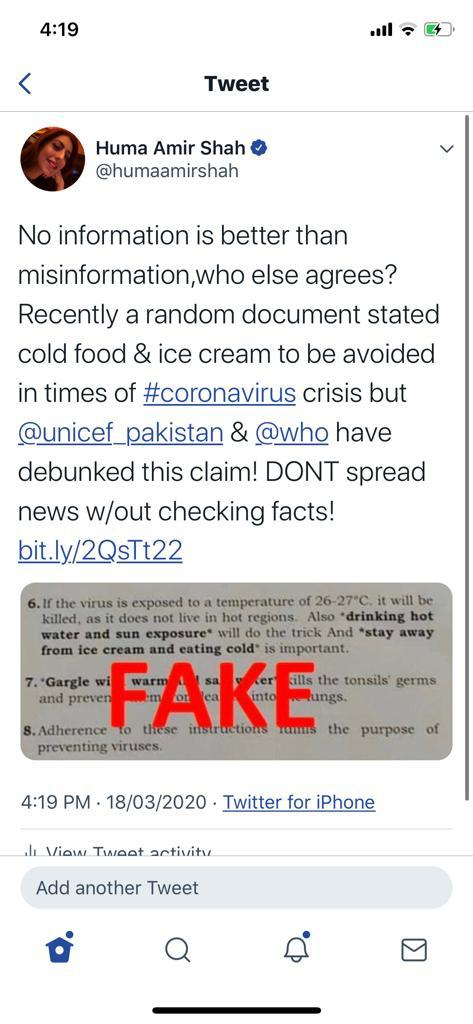False news about ice cream and cold food causing Coronavirus has been circulating and people are not happy about it
With the increased outbreak of COVID-19, digital platforms have become the go-to hub for everyone when it comes to obtaining information about the novel virus. These platforms have also given an opportunity to those who can use this fertile ground to misguide the audience. One such incident is that of ice cream and cold food causing coronavirus, something that has recently been circulating on social channels.
A random document with a number of pointers under the title of UNICEF has been shared by multiple people. One of the points claim that ice cream and cold items cause coronavirus so it’s important to stay away from it. With so much chatter around coronavirus, no one would think twice before believing it and especially if its associated with UNICEF. But the truth is that piece of information is indeed a ‘random document’ because World Health Organisation and UNICEF Pakistan have denied this claim, calling it out as fake.
Following the release of the two global organisations that work towards public health, many people took to twitter expressing their views about the spreading of false news and the need to do a thorough fact check before circulating any such notice.
Following are tweets of some of the top twitteratis and their take on this matter:
With everyone talking about Coronavirus, social media platforms are highly prone to misinformation being spread. Hence, at a time like this it is advisable to do a bit of research before sharing content that could possibly cause more chaos.
To keep you informed, following are some facts as stated by Unicef Pakistan:
- The virus spreads through direct contact
- Symptoms of COVID-19 include fever, cough and shortness of breath while in severe cases it can cause pneumonia
- Wearing a mask doesn’t prevent COVID-19, but if you’re coughing or sneezing wear it to protect others.
- To date, there is no medicine to prevent or treat COVID-19.
- Best treatment is to practice basic hygiene.
Following are four preventive actions you and your family can take to avoid the virus:
- Wash your hands frequently using soap and water or an alcohol-based hand rub.
- Cover mouth and nose with flexed elbow or tissue when coughing or sneezing. Dispose of used tissue immediately.
- Avoid close contact with anyone who has cold or flu-like symptoms.
- Seek medical care early if you or your family member has a fever, cough or difficulty breathing.
For more information please refer Unicef Pakistan (https://www.unicef.org/pakistan/) or World Health Organisation (https://www.who.int/)





